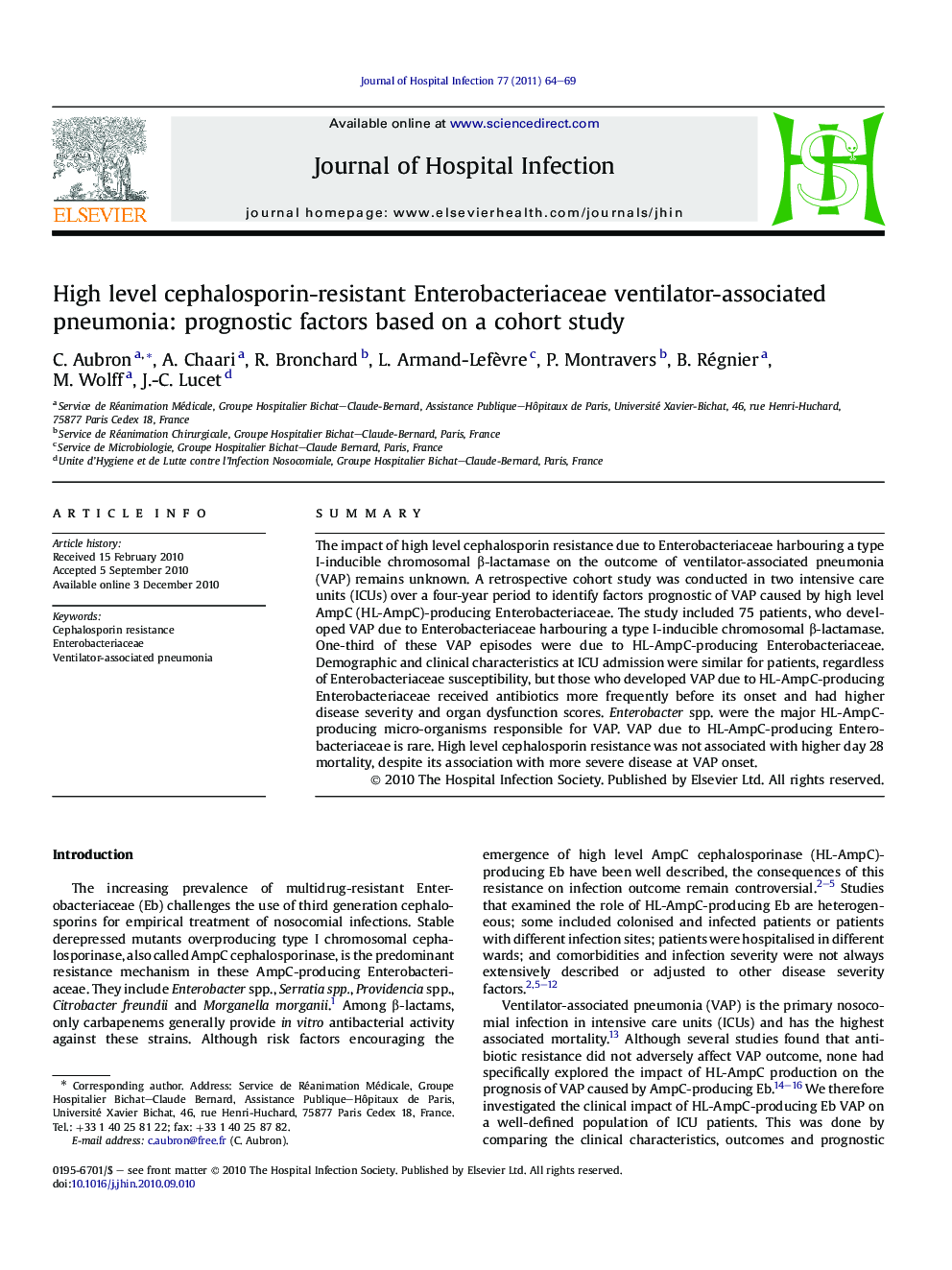| Article ID | Journal | Published Year | Pages | File Type |
|---|---|---|---|---|
| 3372425 | Journal of Hospital Infection | 2011 | 6 Pages |
Abstract
The impact of high level cephalosporin resistance due to Enterobacteriaceae harbouring a type I-inducible chromosomal β-lactamase on the outcome of ventilator-associated pneumonia (VAP) remains unknown. A retrospective cohort study was conducted in two intensive care units (ICUs) over a four-year period to identify factors prognostic of VAP caused by high level AmpC (HL-AmpC)-producing Enterobacteriaceae. The study included 75 patients, who developed VAP due to Enterobacteriaceae harbouring a type I-inducible chromosomal β-lactamase. One-third of these VAP episodes were due to HL-AmpC-producing Enterobacteriaceae. Demographic and clinical characteristics at ICU admission were similar for patients, regardless of Enterobacteriaceae susceptibility, but those who developed VAP due to HL-AmpC-producing Enterobacteriaceae received antibiotics more frequently before its onset and had higher disease severity and organ dysfunction scores. Enterobacter spp. were the major HL-AmpC-producing micro-organisms responsible for VAP. VAP due to HL-AmpC-producing Enterobacteriaceae is rare. High level cephalosporin resistance was not associated with higher day 28 mortality, despite its association with more severe disease at VAP onset.
Related Topics
Life Sciences
Immunology and Microbiology
Applied Microbiology and Biotechnology
Authors
C. Aubron, A. Chaari, R. Bronchard, L. Armand-Lefèvre, P. Montravers, B. Régnier, M. Wolff, J.-C. Lucet,
